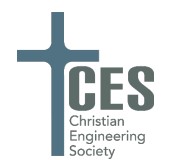Document Type
Paper
Abstract
Christian universities have endeavored to integrate deep, transformational faith principles into a rich teaching and learning experience for both students and instructors since their formation in seventeenth century [1]. However, achieving meaningful faith integration remains a challenge for many faculty members and institutions. While all disciplines wrestle this challenge, the integration of faith into STEM subjects poses additional complexities. How does one seamlessly apply Christian faith when teaching topics as unambiguous, and seemingly secular, as inverting amplifiers and MOSFET transistors?
In our Engineering department, various approaches to infuse faith into the curriculum have been tried. Some faculty members begin each morning with a devotional, while others designate specific class times for sharing their faith and beliefs; Prayer before class, or exams, has become a common practice. While these efforts reflect a genuine attempt to integrate faith into an engineering course, students have expressed a perceived gap between the faith component and the technical content of their studies.
Developed through a two-semester collaboration of a co-teaching team of a senior engineering student and instructor, this paper explores the interplay between technology and faith in pedagogy through biblical based normative values and proposes a meaningful faith integration curriculum for an Electronics course. Quantitative and qualitative results from these proposed pedagogical changes and faith integration content are also presented. Given the significant influence of education on personal and spiritual development of university students, meeting the challenge of incorporating Christian beliefs into the instruction of engineering subjects is of critical importance.
Creative Commons License

This work is licensed under a Creative Commons Attribution-Noncommercial-No Derivative Works 4.0 License.
Copyright
© 2024 Kimberly Cornett. All rights reserved.
Holy Transistors: Applying Biblically Informed, Normative Principles to Pedagogy and Faith Integration in an Electronics Course
Christian universities have endeavored to integrate deep, transformational faith principles into a rich teaching and learning experience for both students and instructors since their formation in seventeenth century [1]. However, achieving meaningful faith integration remains a challenge for many faculty members and institutions. While all disciplines wrestle this challenge, the integration of faith into STEM subjects poses additional complexities. How does one seamlessly apply Christian faith when teaching topics as unambiguous, and seemingly secular, as inverting amplifiers and MOSFET transistors?
In our Engineering department, various approaches to infuse faith into the curriculum have been tried. Some faculty members begin each morning with a devotional, while others designate specific class times for sharing their faith and beliefs; Prayer before class, or exams, has become a common practice. While these efforts reflect a genuine attempt to integrate faith into an engineering course, students have expressed a perceived gap between the faith component and the technical content of their studies.
Developed through a two-semester collaboration of a co-teaching team of a senior engineering student and instructor, this paper explores the interplay between technology and faith in pedagogy through biblical based normative values and proposes a meaningful faith integration curriculum for an Electronics course. Quantitative and qualitative results from these proposed pedagogical changes and faith integration content are also presented. Given the significant influence of education on personal and spiritual development of university students, meeting the challenge of incorporating Christian beliefs into the instruction of engineering subjects is of critical importance.

